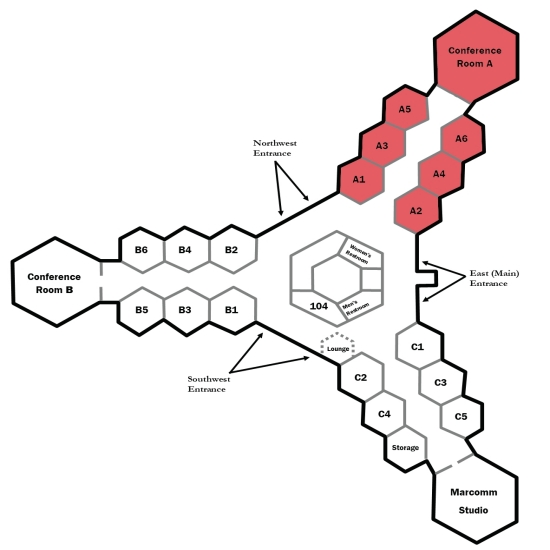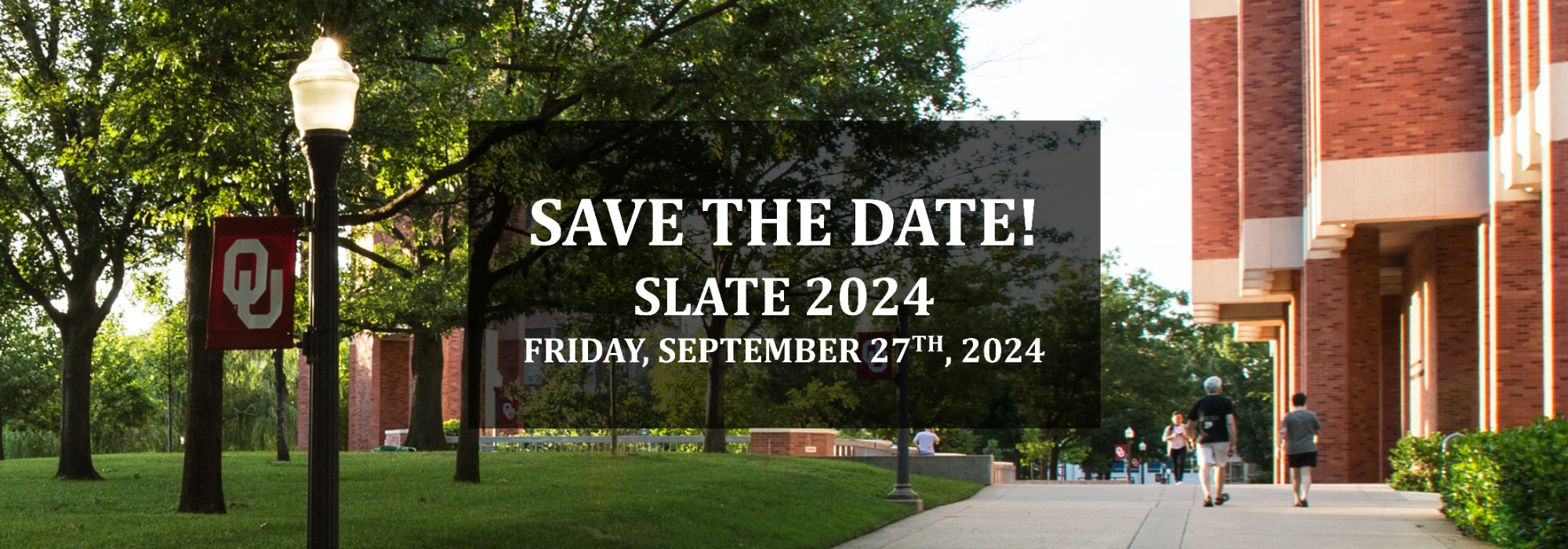
SLATE 2024 will be held on Friday, September 27th, 2024 in the Thurman J. White Forum building on OU's Norman campus.
Registration for SLATE 2024 is now closed.
The OU Symposium on Learning, Assessment, and Teaching Excellence (SLATE) (formally referred to as “OU Assessment Forum”), is a collaboration between the Office of Academic Assessment and the Center for Faculty Excellence. SLATE convene instructional faculty and staff from across all colleges at OU to promote student learning and success. SLATE is designed to provide opportunities for faculty and staff to share engaging, informative presentations on research, best practices, insightful teaching and learning experiences, and innovative assessment methods that address academic quality.
The overarching theme of SLATE 2024 “Opportunities and Challenges in the Digital Era” will center on today’s rapidly evolving digital landscape and its role in teaching and assessment through the following subthemes:

What role can and should generative AI play in teaching and assessment? Sessions in this sub-theme will address the opportunities and benefits of generative AI on teaching, learning, and assessment. We’ll explore what it means to thoughtfully and ethically apply generative AI to achieve our goals in enhancing the overall educational experience for students.

How do we build relationships that are mediated through technology? Sessions in this sub-theme will focus on how instructors foster community to support academic success using online platforms, in both online and in-person classrooms.

How do we as instructors understand the role of technology in assessment practices in a fair and secure fashion? Sessions in this sub-theme will highlight aspects of this question by exploring practical ideas that provide clear instructions and support for successful implementation of technology-enhanced, practical, and authentic assessment methods in higher education, as well as raise questions about how assessment can still be authentic when new technologies aid student writing and idea production.

How can teaching and learning technology choices be informed by pedagogy? Sessions in this sub-theme will look at how you can make choices, informed by pedagogy, about the use of teaching and learning technologies to contribute to the overall cultivation of meaningful and engaging learning experiences for your students.

How can we help students to develop the kind of digital media experience they understand more deeply? Digital literacy is an essential component that we can enable students to use and interrogate when they need. Can we help them to understand what motivates the players in our digital media environment? Can they come to better understand how their experiences are affected by the authors, techniques, and algorithms that they are interacting with? How can they better understand the relationships of public and private companies to their audiences? How can they both protect themselves against manipulation and empower themselves with a deeper understanding through digital literacy?
André-Denis Wright is a microbiologist and the Senior Vice President and Provost of the University of Oklahoma. Previously, Dr. Wright was an Endowed Dean of the College of Agricultural, Human, and Natural Resource Sciences at Washington State University (2018-2021); an endowed Professor and Director of the School of Animal and Comparative Biomedical Sciences at the University of Arizona (2014-2018), and former Chair of the Department of Animal Science at the University of Vermont (2009-2014).
Dr. Wright received his M.S. and Ph.D. degrees from the University of Guelph in Canada. He has published 114 peer-reviewed papers, contributed 18 book chapters, presented 100 conference papers, and delivered 34 plenary lectures in 10 countries. Dr. Wright has served on review panels for the USDA, NSF, and NASA. He has also served as an external scientific reviewer for the governments of Canada, Russia, Kazakhstan, Scotland, and Switzerland, and in 2008, he had a ciliated protozoan named after him, Apokeronopsis wrighti, in recognition of his contributions to microbiology.
Reimagining Writing Assessment in the Age of Generative AI - Dr. Laura Dumin (Room A1)
This talk will critique the limitations of traditional writing assessment methods and explore alternative approaches that embrace the affordances of generative AI while preserving the integrity of the assessment process. It will discuss the need for holistic, human-centered evaluation that values creativity, critical thinking, and authentic expression.
How students use technology to build relationships - Ashley Gonzalez Vasquez, Oumarou Gouba, Wesley Russell, Sydney Sorensen, Mounir Zahidi, facilitated by Dr. M. Geneva Murray (Room A2)
Developing Understanding and Engagement Together (DUET) Student Fellows from the CFE’s pedagogical partnership program will discuss their experiences with technology in building community, as well as its pitfalls. The panel will harness the knowledge and insight of OU students to share with faculty how to build connections with students in the digital era to aid their learning.
Embedding Technology in Assignment Design: Creating Fair and Authentic Measures of Student Learning - Dr. Natasha Jankowski (Room A3)
Is it possible to AI proof an assignment? How do we know students have turned in their own work? What types of assignments or assessments provide fair and authentic documentation of student learning today? This working session reviews frameworks, assignment prompts, and different choices faculty may make to adapt, review, and/or revise assignments and assessments to be fair and authentic measures of learning in a tech-infused world. Implications of different choices on student learning will be explored along with student conceptions of fairness and academic integrity. Working together in groups at the graduate and undergraduate levels, we will discuss ways to implement our ideas in existing courses.
Playing for Keeps: Engaging Students with Gamified Digital Resources - Dr. Sarah Guthery (Room A4)
Using evidence-based gamification to increase the enjoyment, motivation, and understanding in classes. We will cover Genial.ly and several other high-quality digital gamification resources as well as how to organize and embed them in a traditional class structure.
Teaching AI for the Practice of Law - Dr. Kenton Brice & Sean Harrington (Room A5)
Join Kenton Brice and Sean Harrington at SLATE for a dynamic presentation on integrating AI into the classroom and enhancing the Digital Initiative at the University of Oklahoma College of Law. Learn how they incorporate cutting-edge AI tools into the “AI and the Practice of Law” course, offering insights into innovative course design strategies. Discover practical applications of AI in legal education and explore how the Digital Initiative prepares students for modern legal practice by equipping them with essential tech competencies.
Teaching in the AI Era: Harnessing Artificial Intelligence to Enhance Instruction - Dr. Jenel Cavazos (Room A1)
This session will explore the innovative applications of artificial intelligence in higher education, focusing on how AI can assist professors in streamlining their teaching processes and enhancing the overall learning experience for students. Topics will include syllabus and assignment generation, rubric development, exam creation, and ethical considerations. The goal of this talk is to provide practical insights for educators looking to incorporate AI into their teaching workflow, ultimately saving time and improving the quality of instruction.
Meet Your New AI Assistant - Jared Whaley (Room A2)
The Meet Your New AI Assistant session focuses on the use of AI technology to increase student engagement and teacher-student connections. In addition, participants will explore ways to use AI technology to streamline administrative tasks and increase their capacity to focus on student learning. Participants will experience authentic activities integrating AI technology in the creation of a classroom activity.
In a world with AI writing assistants like Grammarly, how do we assess students in authentic ways? - Dr. Jacob Pleasants (Room A3)
In the last few years, the capabilities of AI writing assistants have developed rapidly. No longer mere detectors of writing errors, these technologies will revise and rewrite whole passages, suggest citations, and more. Between free and paid versions, they have also entered mainstream use. Most college students are likely to have at least tried using an AI writing assistant, and many use them extensively for nearly all of their written work. How do these writing assistants change the nature of our assessment practices? What does it mean for an assessment to be authentic and fair in the face of these technologies? We need to wrestle with these questions as instructors, but as educators we also ought to engage our students in meaningful conversations about these technologies. How might we help students become more critical and thoughtful users of these systems, and prepare them to make informed choices about them in the future?
Using Virtual Reality to Engage and Enhance Student Learning of Biomolecular Structures - Dr. Rakhi Rajan (Room A4)
The teaching and student understanding of atomic-resolution structures of biomolecules such as proteins, DNA, and RNA are challenging due to the need to conceptualize three-dimensional (3D) structures of these molecules in the traditional two-dimensional teaching medium. The folded structures of proteins and the atomic interactions holding these structures together need a 3D visualization for better understanding. Virtual Reality (VR) is a pedagogical tool that can provide 3D visualization of biomolecular structures while enabling students to interact with the molecules in a virtual environment. This active learning tool enhances spatial perception of folded biomolecular structures. Engagement with molecular structures in the virtual environment enables a deeper understanding of the concept, thus providing a strong foundation for students in related biochemical and biomedical fields.
AI as Pandora's Box: Job Killer or Cool Creative Tool - Dr. Jensen Moore, Scott Hodgson, Ray Claxton, facilitated by Dr. Ralph Beliveau (Room A5)
What challenges and opportunities does generative AI present for teaching in our classes? Many in the media industries are nervous wondering if AI will replace their jobs. But others are excited about the possibilities these new creative tools provide. This will showcase how creative professionals and educators are taking advantage of some of the new AI opportunities. Panelists of faculty representing different majors in the Gaylord College of Journalism and Mass Communication address issues related to this question with some open-ended discussion among faculty to follow. Topics to include: building creativity, best tools for teaching and creating, ethical dilemmas and plagiarism, teaching constructive uses of AI, and addressing workplace applications and challenges.
Dr. Natasha Jankowski is a higher education and assessment expert, Senior Fellow for community colleges at Strada Education Network, and lecturer for New England College and Endicott College. She is the former Executive Director of the National Institute for Learning Outcomes Assessment (NILOA) and previously served as graduate program coordinator and research associate professor at University of Illinois Urbana-Champaign in the department of education policy, organization, and leadership. She is the author of various assessment related books, articles, and reports; and she regularly presents, nationally and internationally, on assessment of student learning processes, practices, and evidence-based storytelling.
This keynote provides an overview of the current landscape of generative artificial intelligence (AI) in higher education along with implications and opportunities for AI in relation to teaching, learning, and assessment. Offering various lenses for approaching and engaging AI in pedagogy and assessment, we will explore connections and questions for AI along with navigating risks to academic integrity. This keynote will outline 3 potential approaches for answering the question: What does AI mean for assessment and evidence of student learning in higher education? Infused with course-based applications from different disciplinary perspectives, the keynote will share various examples and resources along with implications for programmatic perspectives.
SLATE Learning Circles (LCs) are informal, highly interactive, facilitated discussions on each of the symposium’s subthemes. LCs will be open for 45-minutes.
| Subtheme | Facilitated by |
|---|---|
| Generative AI (Room A1) | M. Geneva Murray, PhD |
| Building Connections with Students in a Digital Era (Room A5) | Mashhad Fahes, PhD |
| Measuring Student Performance using Authentic & Effective Tools (Room A3) | Shannon Bert, PhD |
| Pairing Pedagogy with Technology in Teaching (Room A6) | Jeremy Hessman |
| Digital Literacy (Room A2) | Ralph Beliveau, PhD |
| Measuring Student Performance using Authentic & Effective Tools (Room A4) | Amanda Kis, PhD |
Dr. Natasha Jankowski is a higher education and assessment expert, Senior Fellow for community colleges at Strada Education Network, and lecturer for New England College and Endicott College. She is the former Executive Director of the National Institute for Learning Outcomes Assessment (NILOA) and previously served as graduate program coordinator and research associate professor at University of Illinois Urbana-Champaign in the department of education policy, organization, and leadership. She is the author of various assessment related books, articles, and reports; and she regularly presents, nationally and internationally, on assessment of student learning processes, practices, and evidence-based storytelling.
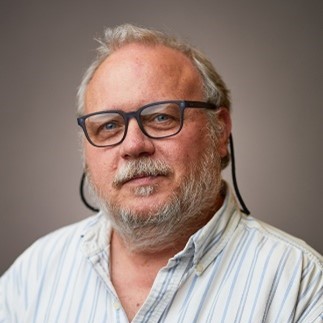
Ralph Beliveau is a Professor for the Gaylord College, affiliate faculty in Film and Media Studies and Women’s and Gender Studies at the University of Oklahoma. For 2023-24, he serves as a Presidential Teaching Fellow in the Honors College. He writes and teaches about media education and literacy, Horror media, race, documentary, rhetorical criticism, video production, popular culture, & cultural studies.
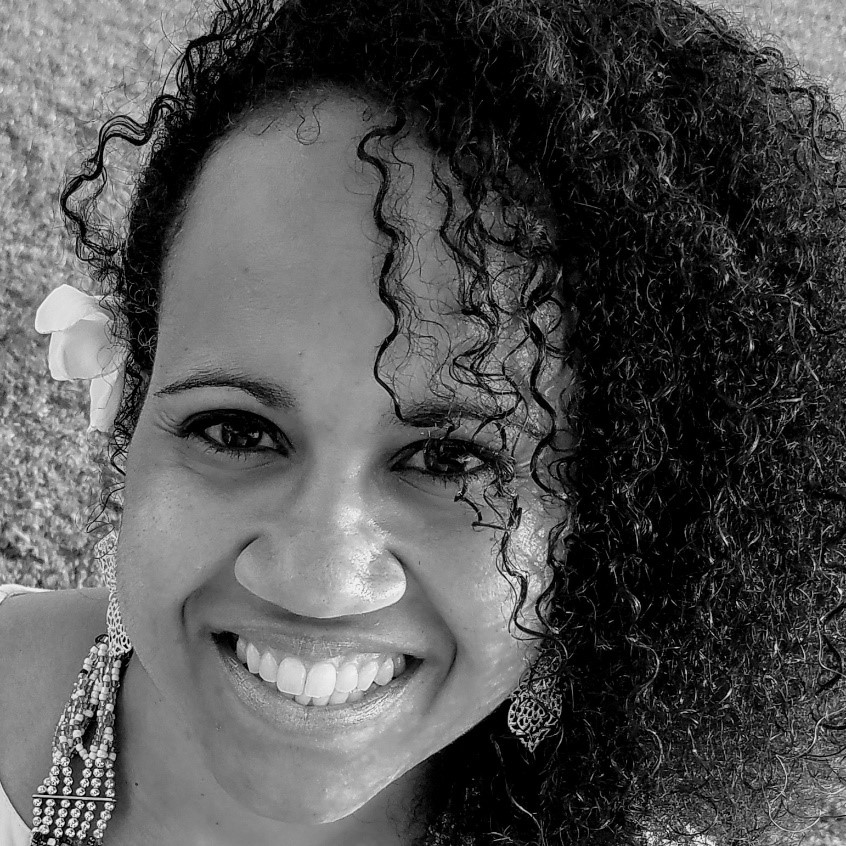
Dr. Bert is interested in designing and evaluating strategies that can sustain, enhance, and when necessary, create environments that are conducive to positive development. Dr. Bert is dedicated to making substantial differences in the lives of disadvantaged individuals by seeking to understand how historical factors (e.g., history of abuse, trauma, and neglect) and developmental contexts (religiosity, spirituality, family structure, and social support) shape parenting behaviors, subsequently impacting children’s behavior and adjustment.
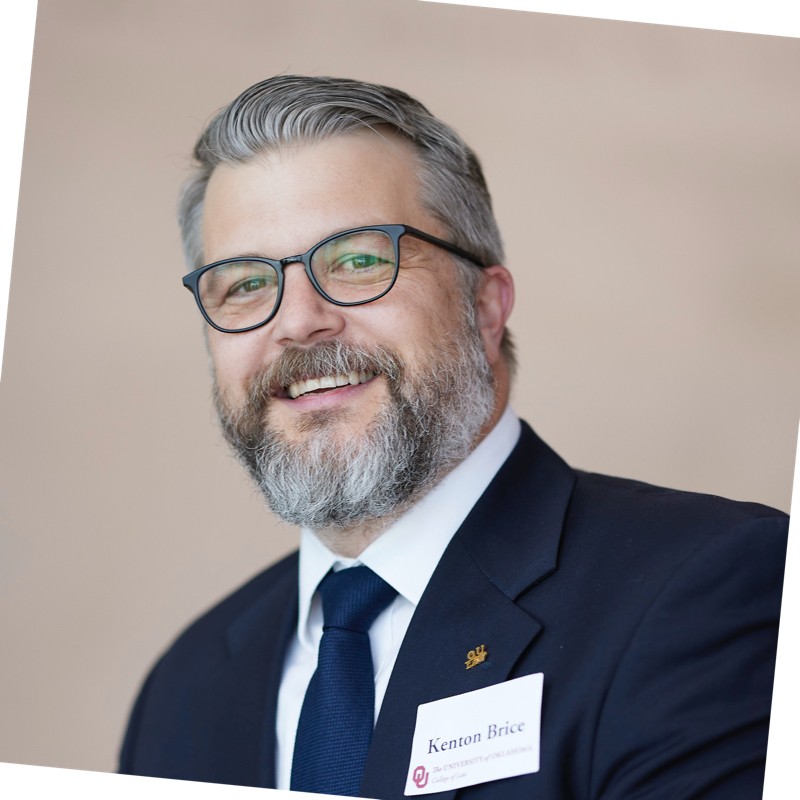
Kenton Brice is the Director of the Law Library and Associate Professor of Law at the University of Oklahoma College of Law. He brings extensive legal and technical experience, having practiced as an attorney before joining OU Law, where grew the Digital Initiative and now leads what has been termed as a “law library of the future”. An expert in legal technology education, he has contributed to numerous publications and presented on AI, legal research, and law practice technology at national conferences.
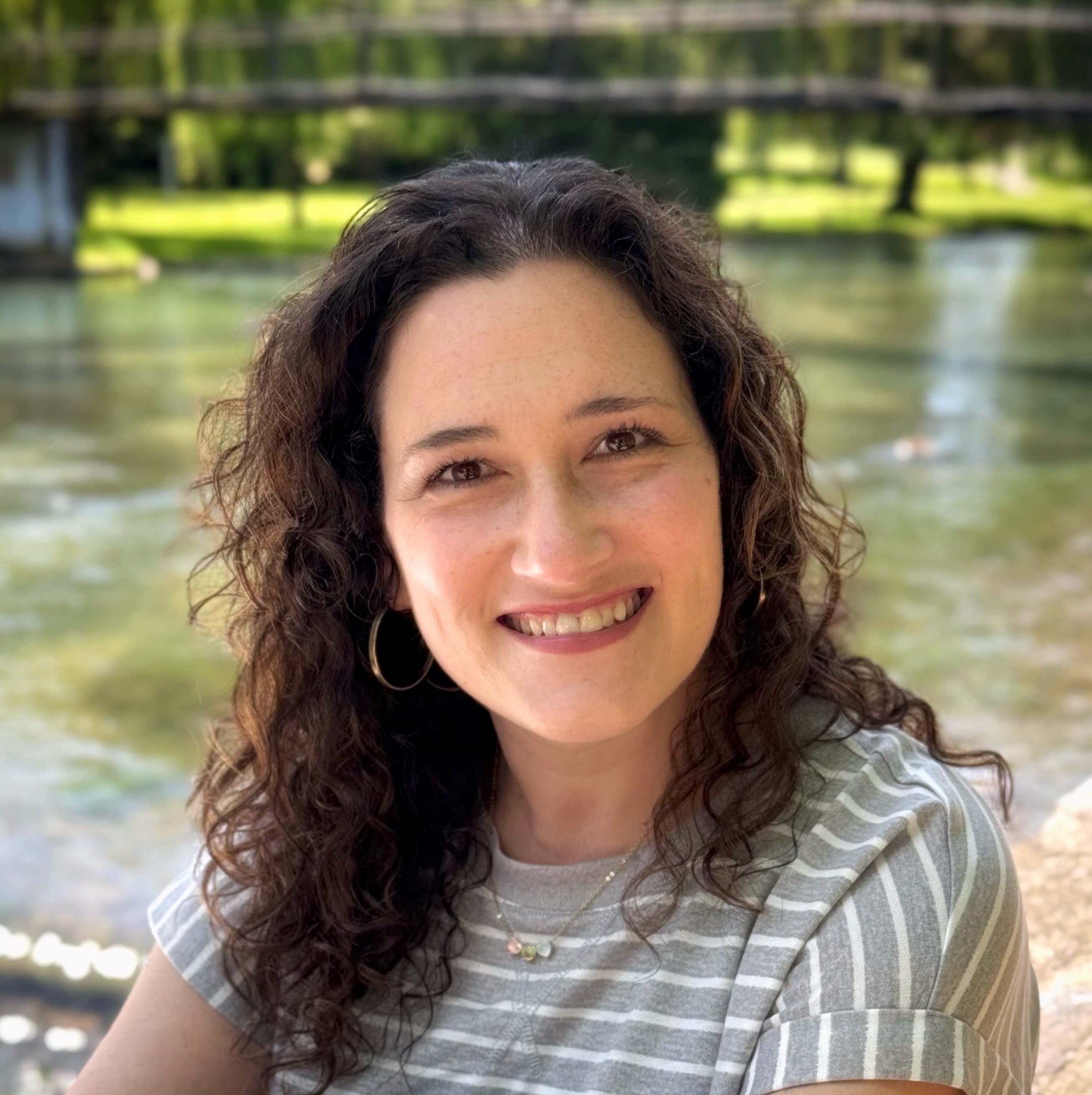
Dr. Jenel Cavazos is an Associate Professor and Master Teacher in the Department of Psychology. As the Introductory Psychology Program Coordinator, she teaches an average of 1500 students per year, supervises sections of PSY 1113 taught by graduate students, and conducts a mentor program for teaching. Her research focuses on the scholarship of teaching and learning and the impact of mental imagery on study habits and memory.
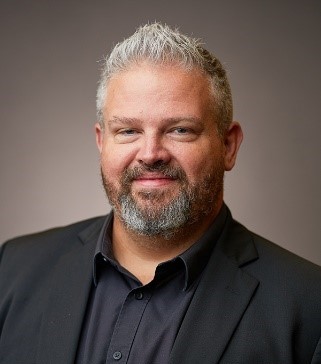
Ray Claxton is an associate professor of advertising and teaches art direction, visual communications, and creativity/design thinking. He has over 24 years of experience in the advertising, design, and marketing fields, and he’s created award-winning television, web, and interactive campaigns.
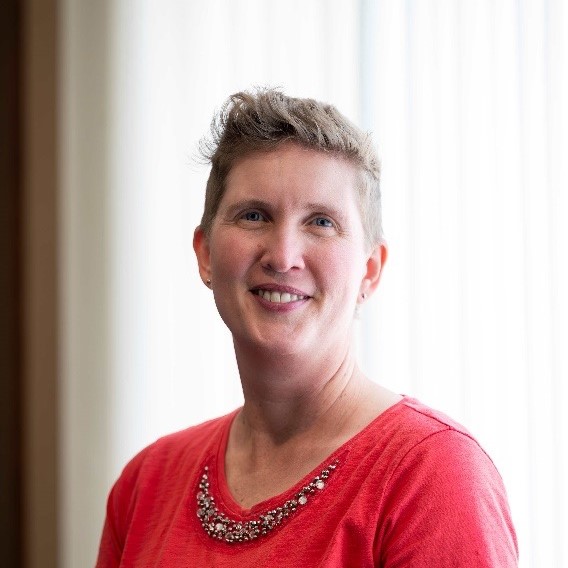
Dr. Laura Dumin obtained her PhD in English from Oklahoma State University in 2010. She is a professor in English and Technical Writing at the University of Central Oklahoma who has been exploring the impact of generative AI on writing classrooms. She also runs a Facebook learning community to allow instructors to learn from each other.
When she is not teaching, Laura works as a co-managing editor for the Journal of Transformative Learning, directs the Technical Writing BA, is the AI Coordinator at UCO, and was a campus SoTL mentor. She has created four micro-credentials for the Technical Writing program, one for faculty who complete her AI workshop on campus, and one asynchronous faculty program on AI.
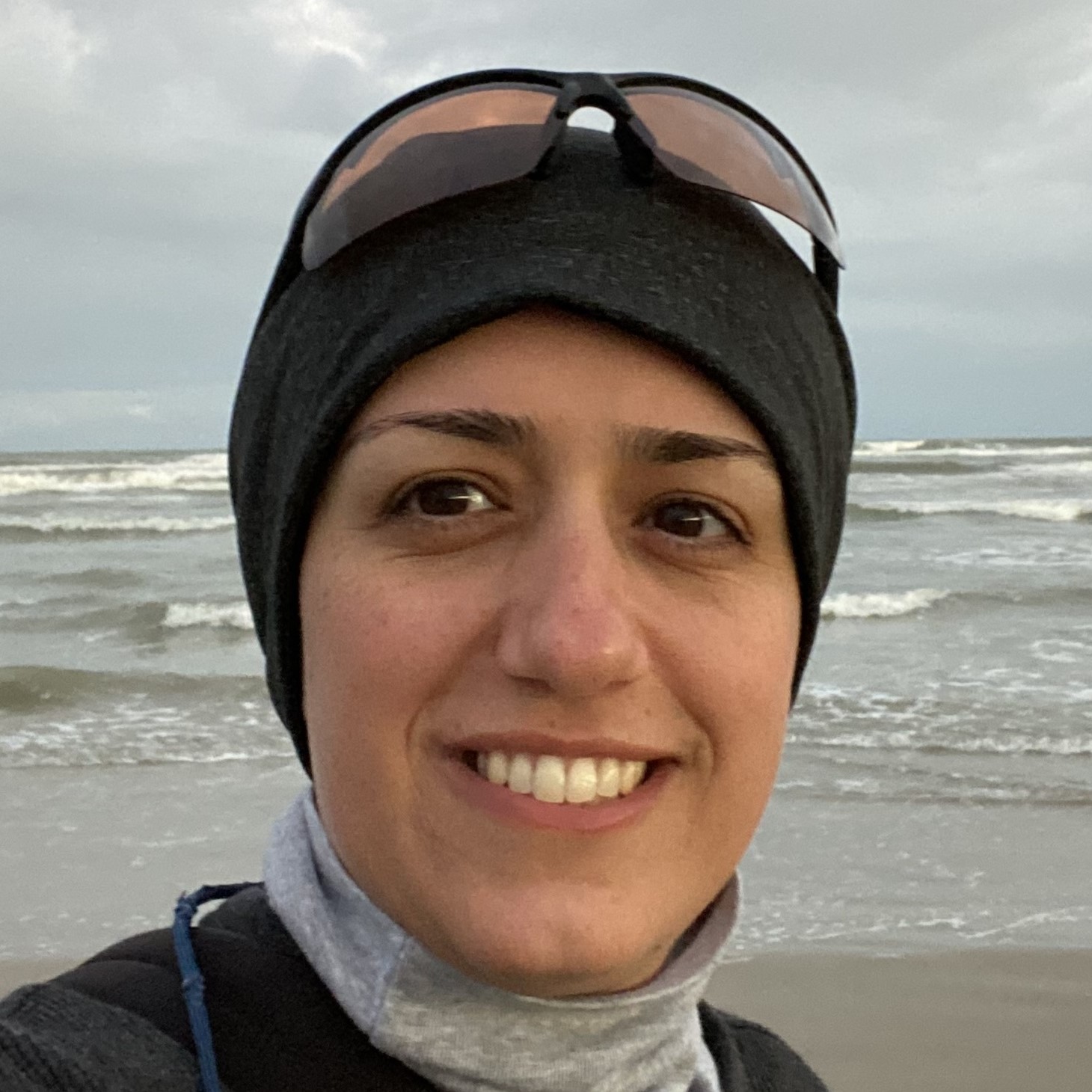
Dr. Mashhad Fahes is an Associate Professor in the School of Petroleum and Geological Engineering at the University of Oklahoma. She grew up in Lebanon where she earned her B.Sc. degree in physics in 2002, then transitioned to studying the application of physics in solving problems related to flow in porous media. She earned a PhD degree in petroleum engineering in 2006 working on the impact of wettability on the production of gas and condensate. Her current research spans problems relating to enhanced oil recovery, interfacial science, geothermal energy extraction, academic culture, STEM education, and energy solutions.
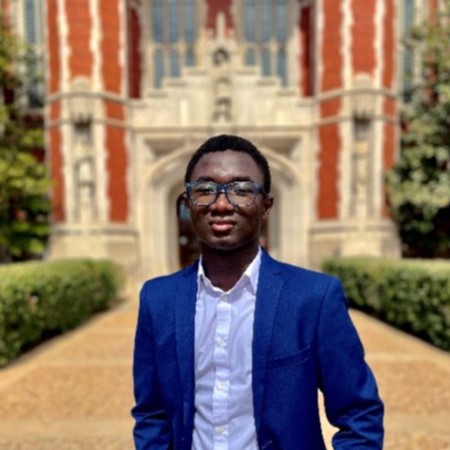
Oumarou Gouba is from Burkina Faso, and has a unique educational journey. Having spent two transformative years at a boarding school in Burkina Faso for high school, Oumarou moved to Canada to attend the United World Colleges at Pearson College in Victoria, BC. There, he successfully graduated with a Bilingual International Baccalaureate Diploma. Continuing his pursuit of knowledge, Oumarou crossed borders again, this time to the United States, where he is currently a part of the University of Oklahoma’s class of 2026 where he is majoring in Information Science and Technology. Oumarou likes to cook and has a passion for entrepreneurship.
Ashley Gonzalez Vasquez is an international student from the Dominican Republic pursuing a bachelor’s and master’s degree in architecture, expecting to graduate in 2026. She previously lived in Italy, where she attended UWC Adriatic. Ashley has been working with the CFE department since 2022, specializing in accessibility, also as a DUET Student fellow.
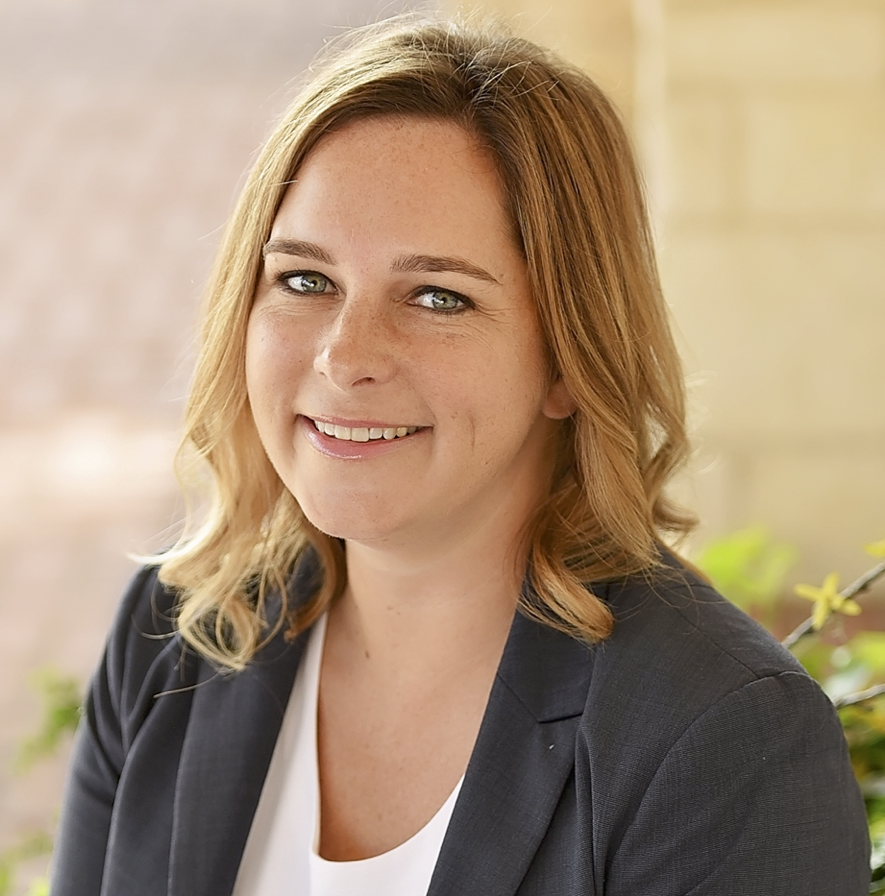
Sarah Guthery is an Associate Professor in Educational Leadership and Policy Studies and the Director of the Institute for the Study of Education Finance at the University of Oklahoma. She has worked in numerous roles in educator certification, including the training and licensing of new teachers, principals, and superintendents. Dr. Guthery’s research centers on the production, retention, and promotion of educators. She teaches policy and quantitative methods classes, using gamification and digital resources.
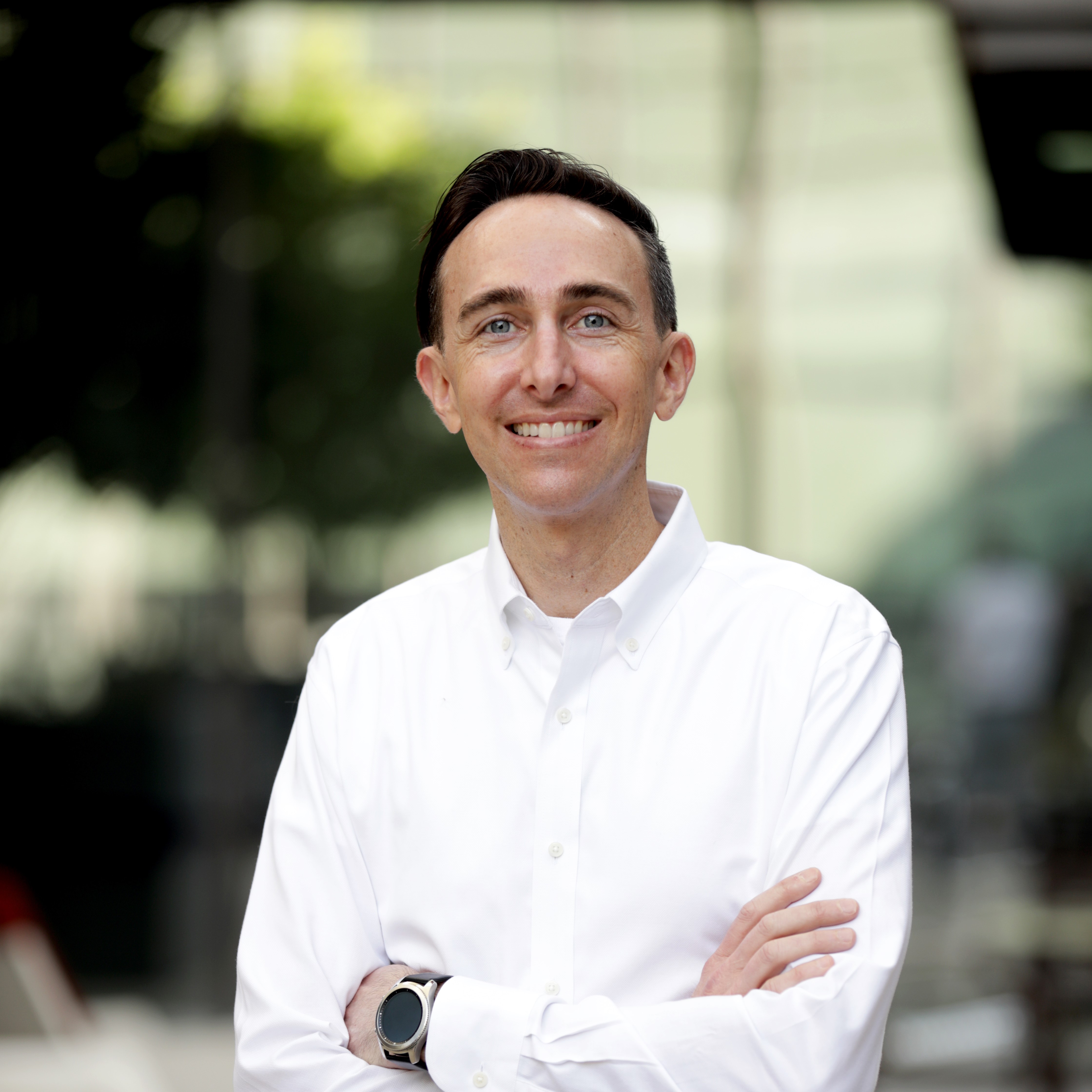
Sean Harrington is the Director of Technology Innovation at the University of Oklahoma College of Law. With a JD, MLIS, and MS in Data Analytics, he specializes in the intersection of law and technology. He is known for leading the Digital Initiative, authoring on legal tech topics like AI, and regularly presenting at legal technology conferences. He aims to empower future lawyers with the tech skills needed for modern legal practice.
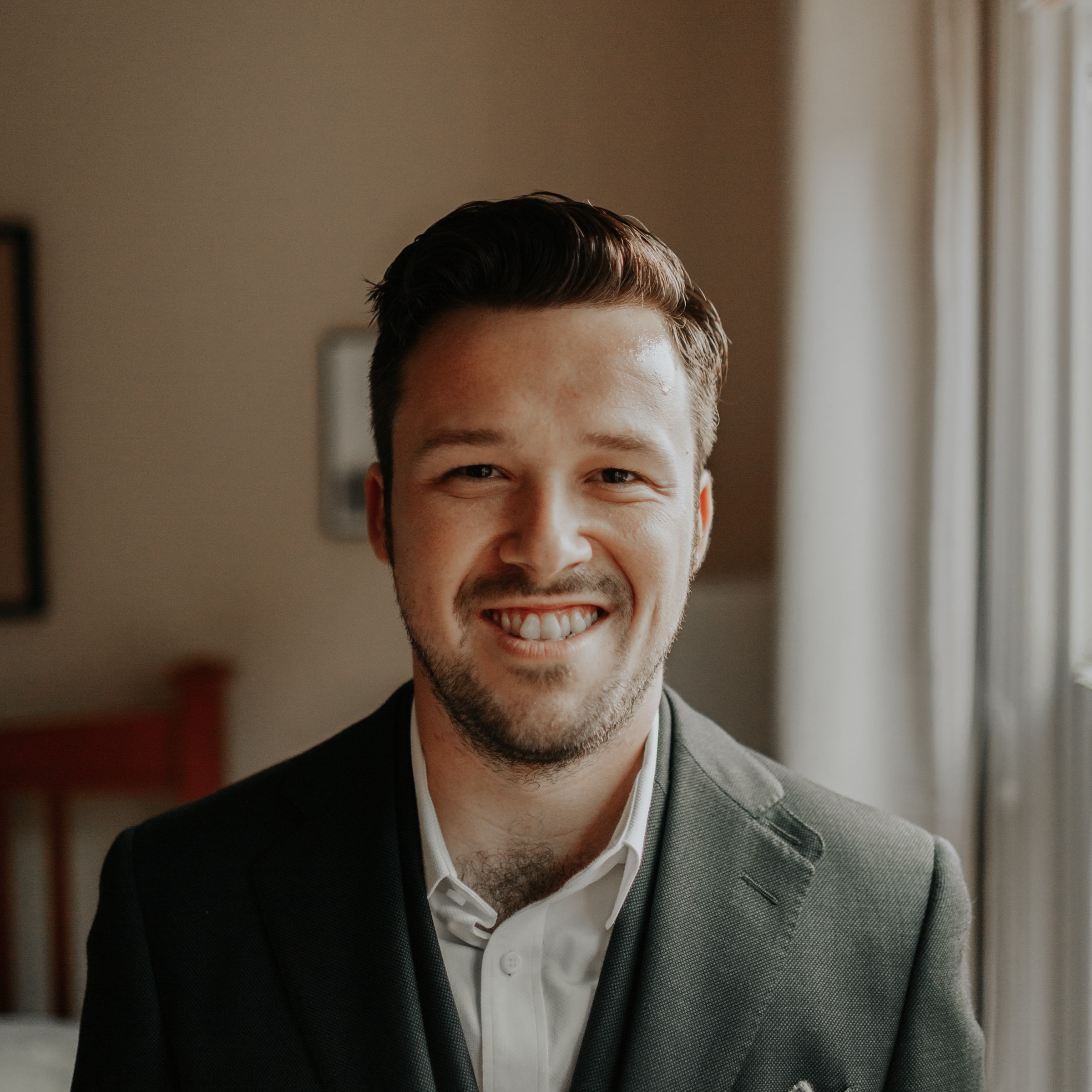
Jeremy Hessman holds a Master’s degree in Public Administration from the University of Oklahoma focusing on Higher Education Policy, complemented by a Bachelor’s degree in Classical Culture and History. In dual capacities, Jeremy serves as an Adjunct Professor, teaching Academic Success to college freshmen, and as an Instructional Technologist at OU’s Information Technology department, overseeing digital tools focused in the realm of video management and creation, while also providing digital tool training on many other platforms. With almost 15 years experience in technology, they have supported faculty, researchers, students, and staff members across all three campuses, related to technology both inside and outside of the classroom. When not working, they enjoy traveling with their spouse and caring for their pets: Hayden the dog, Saoirse and Pangur Ban the cats, and Cinder the rabbit.
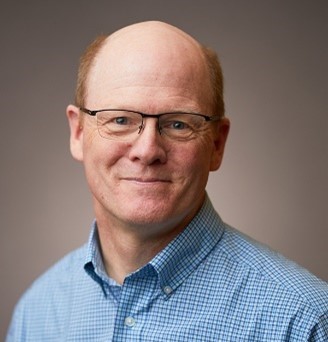
Prior to coming to OU, Scott Hodgson worked as a producer/director in New York, Illinois, Pennsylvania and Washington, D.C. for several production houses, in-house corporate video facilities and CNN’s Washington bureau. He has also worked overseas helping develop local programming and training personnel in Egypt, Ethiopia, Nepal and Bangladesh. From 1988-2006 he served on the faculty and administration at SIU where he also ran a grant production unit and was executive producer of a local PBS series. In 2001 Hodgson was selected by Producer magazine as one of the top 100 producers in the nation. Scott continues to produce and direct and has won numerous national and international awards.
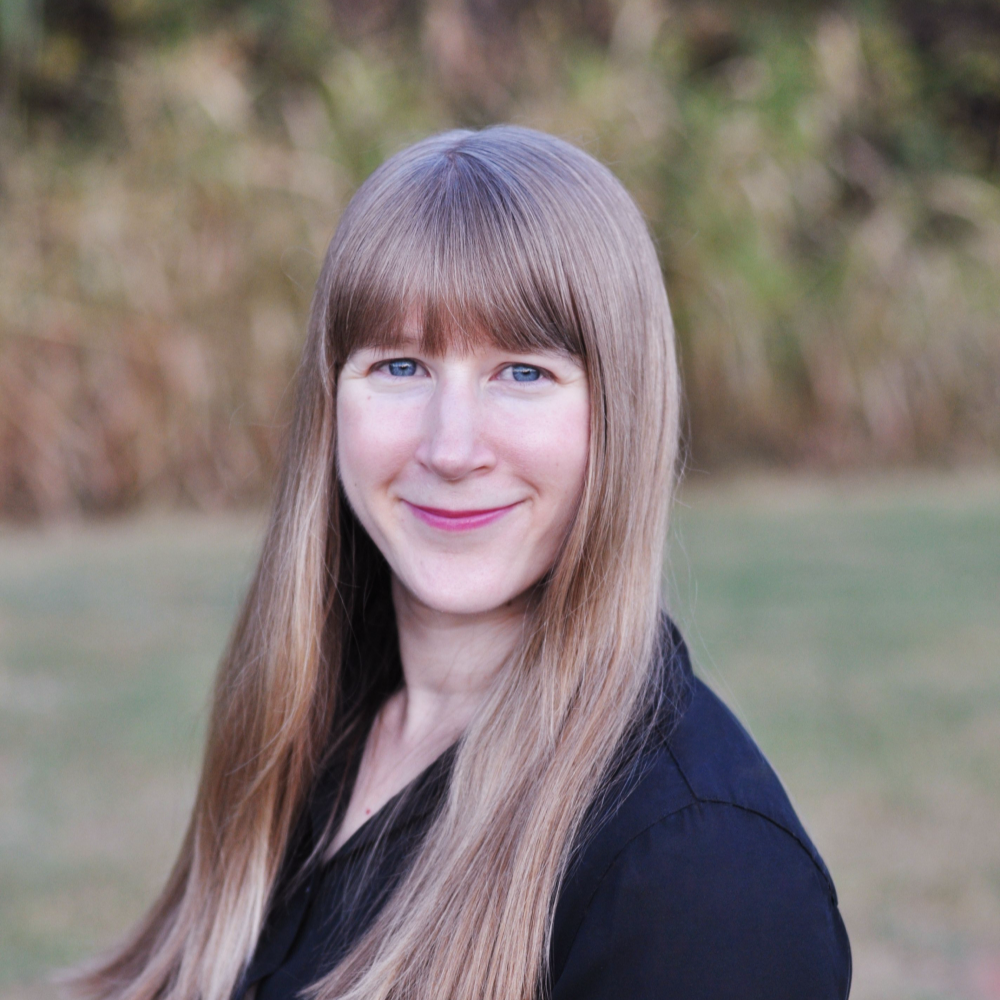
Amanda Kis is a lecturer in the School of Meteorology and adjunct instructor in the Department of Mathematics. She has been teaching in university classrooms for 12 years and has instructed courses ranging from college algebra to differential equations and introductory weather and climate for non-science majors to atmospheric fluid dynamics for meteorology majors. She enjoys trying out educational technologies and implementing practices and strategies to support her students’ learning. In particular, she was an early adopter of Top Hat and integrated it into her introductory weather and climate course to support student engagement.
Jensen Moore, Ph.D. is an associate professor of public relations where she teaches public relations principles, origins, and practice, crisis communication, social media strategies, public relations campaigns, sports promotion, strategic communication for nonprofits, and contemporary issues in public relations. Dr. Moore’s primary research interests are at the intersection of social media, crisis communication, and health communication. Specifically, her current research focuses on how individuals grieve using social networking sites.

M. Geneva Murray is the Senior Associate Director for Teaching at the Center for Faculty Excellence. She leads various faculty cohorts, including the DUET Fellow Program and the Know No Bounds book club. She works closely with the teaching team to develop engaging, topical workshops and learning communities, as well as asynchronous learning experiences.
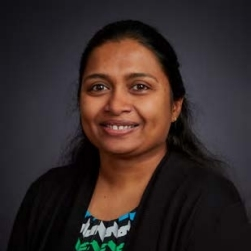
Rakhi Rajan is an Associate Professor in the department of Chemistry and Biochemistry at the University of Oklahoma. She is a biochemist and structural biologist with a research focus on understanding the molecular mechanisms of protein-nucleic acid interactions of the CRISPR-Cas systems to enable creation of error-free biotechnological tools. She uses Virtual Reality as an active learning tool to teach molecular structures of protein/RNA/DNA systems in undergraduate and graduate courses.
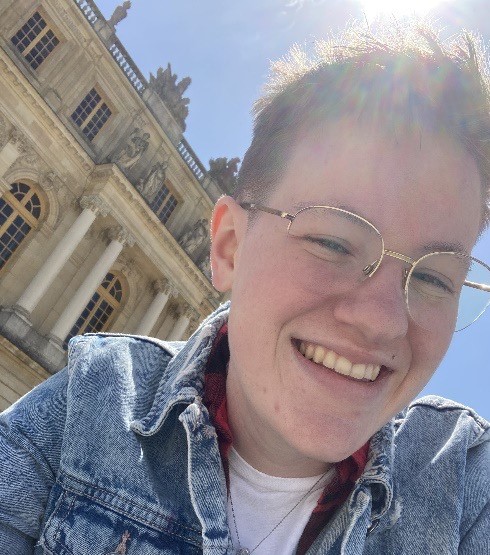
Wesley Russell Wesley is a part of the class of 2025, pursuing a double major in social work and women’s & gender studies. Originally from McComb, Mississippi, Wesley comes from a family of nine. When Wesley is not in the classroom, he enjoys spending time with his orange tabby cat named Lewie, reading, painting, traveling, and trying new things.
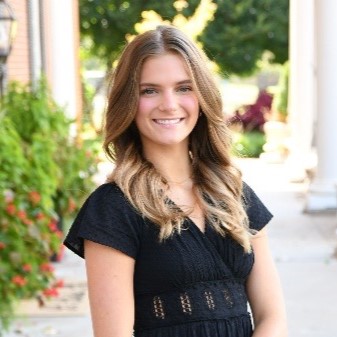
Sydney Sorensen is a Chemical Bioscience major at the University of Oklahoma. She is graduating in 2025 with the hopes of attending dental school after she graduates. She is an active member of the Pi Beta Phi sorority and the Pre-Dental Club on OU’s campus. Sydney is from San Antonio, Texas and to find balance outside the books, she enjoys lifting weights at the gym, spending quality time with her friends, listening to music, or cooking.
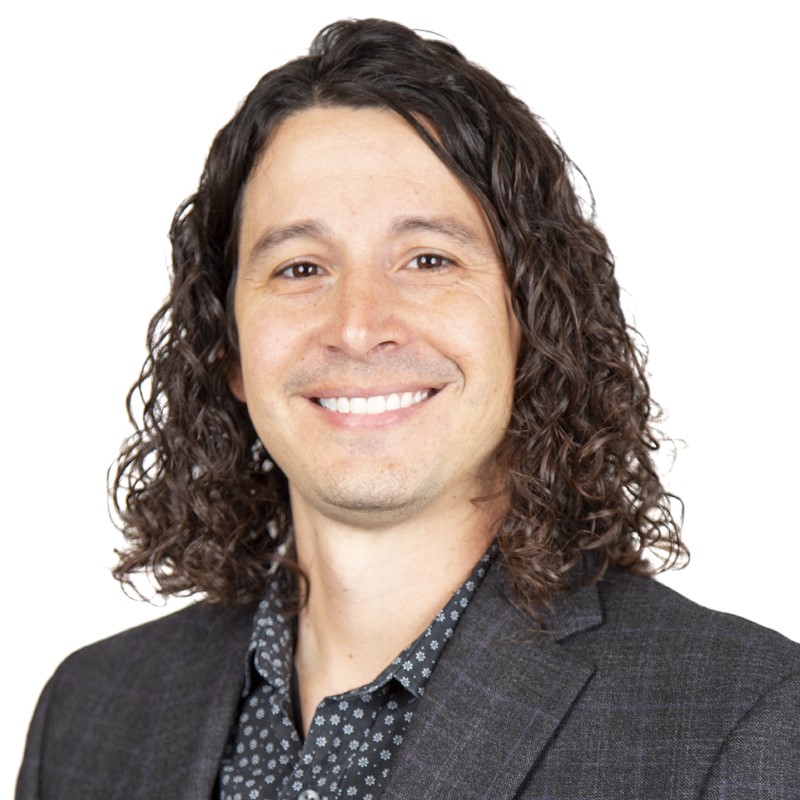
Jared Whaley is a Professional Development Coordinator for GEAR UP for the FUTURE at the K20 Center. Jared leverages 15 years of middle school social studies experience to create impactful professional development for educators. He has presented at local, state, and national conferences.
Thurman J. White Forum Building
Address: 1704 Asp Ave, Norman, OK 73072
The red section (shown below) is the designated parking area for the SLATE conference. This parking area will be reserved specifically for SLATE attendees.
No parking decal is needed for this parking area on the day of the conference. The entrance to this lot is on Asp Avenue (see blue arrow).
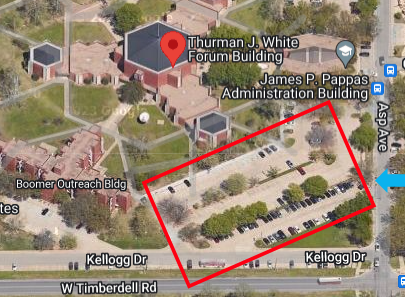
Registration tables will be located near the East (Main) Entrance to the building.
The conference will primarily utilize the "A" wing of the building, including Rooms A1-A6 and Conference Room A.
Access to a lactation room will be provided in the Marcomm Studio located at the Southeast end of the building.
